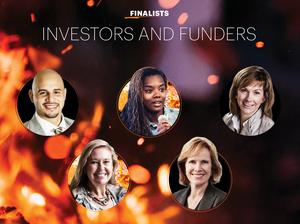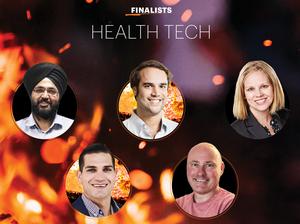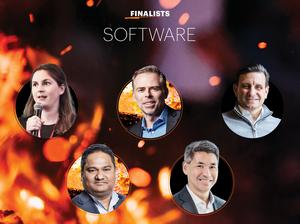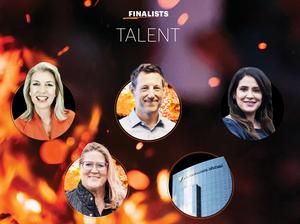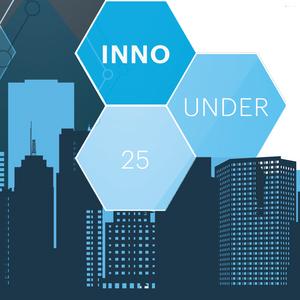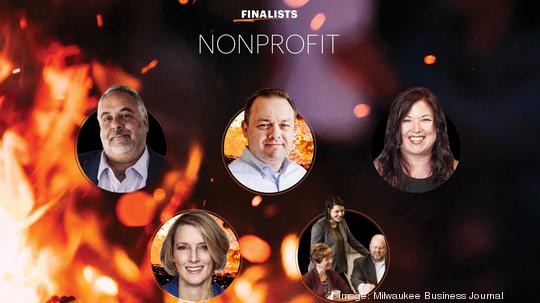
Although they range in industry focus from health care innovation to water technology, and in geographic impact from Milwaukee to Green Bay, the finalists in the nonprofit category of Wisconsin Inno's 2021 Fire Awards have at least one thing in common: They're focused on connecting communities and encouraging collaboration to accelerate entrepreneurship.
The annual Wisconsin Inno Fire Awards program recognizes companies, groups and organizations that are "heating up" the state's technology ecosystem. The following finalists were nominated by the public and selected by the Wisconsin Inno and Milwaukee Business Journal editorial team in the nonprofit category. A panel of independent judges will choose one winner from each of the five Fire Awards categories.
We asked all of the Fire Awards finalists about their accomplishments, challenges and how Wisconsin's startup and technology ecosystem could be improved. Their answers have been edited for clarity and length.
- Bridge to Cures
- Code the Way
- Greater Green Bay Chamber
- MKE Tech Hub Coalition
- The Water Council's BREW 2.0 Post-Accelerator
Bridge to Cures
Wauwatosa
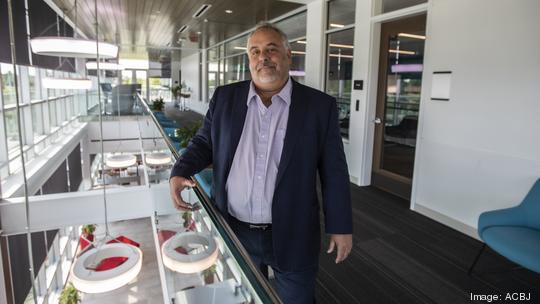
Led by Daniel Sem, Bridge to Cures is a volunteer-run social impact nonprofit focused on turning health care innovations into needed products and services by supporting entrepreneurs in the challenging period between discovery and fundable startup. The organization is partnered with the Wisconsin Economic Development Corp. and six southeast Wisconsin research institutions, leveraging more than $150 million in annual health care research. It collaborates across the public and private sectors and with both academic institutions and industry leaders to offer startup resources, mentoring and exposure to venture capitalists.
Biggest accomplishment in the past 12 months: "We led the execution of the first phase of a five-year Clinical and Translational Science Institute grant to the Medical College of Wisconsin (MCW) and five partner universities (MCW, the University of Wisconsin-Milwaukee, Concordia University, Marquette University, Milwaukee School of Engineering), as well as the Versiti Blood Center of Wisconsin, to build a regional resource and portal to help all southeast Wisconsin health care and health tech innovators, which is called Accelerating Medical Product Development through Networked Resources (AMPDNR). The major accomplishment here was our series of startup boot camps for more than 70 health care and health tech entrepreneurs, culminating in pitches by 11 finalist teams to two panels of investors."
Biggest challenge in the past 12 months: "The big challenge was how to “connect” to the existing ecosystem; to support it, but not take a top-down approach. Our regional ecosystem was in tremendous flux ... Bridge to Cures has a great track record of helping startups, including many that have gone on to raise millions in venture capital, but it has been existing essentially as a partner with the six largest southeast Wisconsin research universities and the WEDC.
"These are positive connections and partners, but the trick was how to expand beyond those comfortable silos, especially when the previous driving force for our organic ecosystem, Startup Wisconsin Week led by Matt Cordio, was ... evolving this year."
Milestone the organization is working toward in the next 12 months: "Bridge to Cures is looking to coalesce and support the organized chaos of southeast Wisconsin’s health care and health tech ecosystem. ... To this end, we are forging partnerships more broadly in the region with key grassroots drivers, funders, corporations and donors. ... We want to expand beyond the usual goal of connecting Madison and Milwaukee to now forging new and stronger connections to Chicago’s health care and health tech ecosystem.
"This next year we are looking to secure a larger funding round to support the staffing needed to make all of this happen, and also to create a new angel investor group so we can better grow and support southeast Wisconsin’s health care and health tech ecosystem."
How Wisconsin’s technology and startup ecosystem could be improved: "The ecosystem in Wisconsin has long been really fragmented into silos, and run in a kind of top-down manner by an old guard of iconic entrepreneurs or by well-intentioned large corporations. It should be grassroots, sort of organized chaos, and I see that beginning to happen finally as a new guard of young and energetic entrepreneurs ... emerges and enters the ecosystem. ... We need to stop trying to control and build our ecosystem from the top down, and embrace and support more of the bottom-up approach of supporting the chaos of innovation."
Inspiring book: "Boulevard of Broken Dreams: Why Public Efforts to Boost Entrepreneurship and Venture Capital Have Failed — and What to Do About It" by Josh Lerner and “Startup Communities: Building an Entrepreneurial Ecosystem in Your City” by Brad Feld.
Code the Way
Brookfield
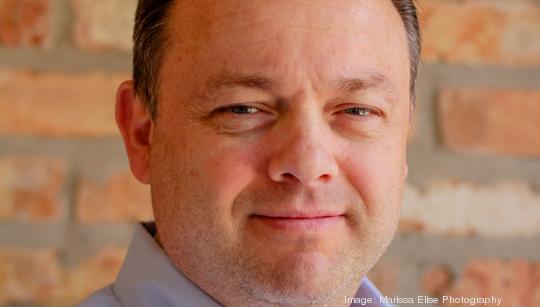
Founded by Brad Zepecki, president and CEO of Octavian Technology Group, Code the Way partners with high schools, technology companies and local nonprofit organizations to offer students advanced computer science training. The projects benefit the nonprofits, which couldn't otherwise afford such solutions. Code the Way partners with Brookfield's Elmbrook Schools, Greendale School District, the School District of New Berlin and Milwaukee Public Schools. In 2020, it partnered with The Gathering of Southeast Wisconsin to have students create an online portal for volunteer signups.
Biggest accomplishment in the past 12 months: "(Scaling) our program while continuing to offer our program at no cost to students. ... Student participation increased 14% and females accounted for 20% of student participants. Nonprofit participation doubled from one nonprofit to two. Student project managers aided in determining project requirements, managing a team of four students throughout the summer, and interacting with nonprofit leaders to ensure the delivery of high-quality software."
Biggest challenge in the past 12 months: "The pandemic. Restricted access to students made it difficult for us to promote our program and extend opportunities to a more diverse student population. Transitioning to a virtual environment changed every aspect of our program. Teaching tools and methods, meetings, student collaboration, mentor involvement and nonprofit participation were just a few of the things that needed to be completely redesigned to work in a virtual environment. I am proud of our team and the students for developing the opportunities and working through the challenges of the virtual environment."
Milestone the organization is working toward in the next 12 months: "Increase the diversity of our student participants. We believe that diversity is a key to the success of Wisconsin companies, startup ecosystem and future technology leaders."
How Wisconsin’s technology and startup ecosystem could be improved: "We believe the largest positive impact on Wisconsin's technology and startup ecosystem can be made by providing opportunities for all students to learn about computer science through the application of real-world projects that positively impact our community. Combining the resources and expertise of Wisconsin companies, school programs, student clubs and organizations, and a variety of additional program opportunities are needed to develop the talent and diversity of future Wisconsin technology leaders."
Inspiring thought leader: Scale Up Milwaukee executive director Elmer Moore
Greater Green Bay Chamber
Green Bay
![GreaterGreenBayChamber1[77] copy](https://media.bizj.us/view/img/12147122/greatergreenbaychamber177-copy*540xx1200-675-0-471.jpg)
The Greater Green Bay Chamber's economic development team, led by vice president of economic development Kelly Armstrong, works to support and grow the region's startup and entrepreneurial ecosystem. The chamber's Startup Hub aims to be a physical and virtual one-stop-shop for entrepreneurs, offering business support ranging from business plan reviews to funding source introductions. It also helps startups navigate the other available small business resources. Its 10,000-square-foot Urban Hub coworking space reopened this year, providing space to foster new partnerships, host events and serve local innovators.
Biggest accomplishment in the past 12 months: "The growth of the Urban Hub co-working space in downtown Green Bay. Coming off of Covid-19, with the Urban Hub, we centralized the disparate tech entrepreneurship community in a powerful and necessary way. ... Through growing interest, additional programs and partnerships have been fostered including The Blueprint Green Bay business accelerator, WiSys VentureHome Green Bay, Tundra Angels and additional educational resources and training programs, such as Coffee Break sessions. Building startup communities cannot happen without a centralized space, as well as the resources that it affords for any entrepreneur."
Biggest challenge in the past 12 months: "The overall lack of community. People were fragmented, disparate, working from home, working at coffee shops and unable to collaborate. Through the growth of the Urban Hub, not only have we been able to bring people back together, but also bring new people into that community for the first time such as minority-owned, women-owned and veteran-owned businesses through the development of programming such as The Blueprint Green Bay business accelerator."
Milestone the organization is working toward in the next 12 months: "Over the next 12 months, the goal of our organization will be providing an ever-growing suite of resources for all entrepreneurs, which includes marketing resources, banking resources and more, which will bring more business market at a faster rate. We believe our recent partnership with WiSys through the VentureHome program formalizes that goal — now we need to carry out that work."
How Wisconsin’s technology and startup ecosystem could be improved: "Wisconsin’s tech and startup and ecosystem can be improved through the further elimination around the stigma of failure. We have seen firsthand that many entrepreneurs in Greater Green Bay have been thinking about an idea for years, but are afraid to take the next step because of the risk involved in failing. In northeast Wisconsin, we’re trying to change that narrative one conversation at a time."
MKE Tech Hub Coalition
Milwaukee
![RPM kickoff[2]](https://media.bizj.us/view/img/12147144/rpm-kickoff2*540xx1200-674-0-256.jpg)
The MKE Tech Hub Coalition is a membership group of more than 100 companies, institutions and organizations focused on inclusively doubling the number of technology workers in the Milwaukee region by 2025. Led by CEO Kathy Henrich, the organization runs programs including its early-stage startup incubator FOR-M, a technology apprenticeship program in partnership with local corporations, its MKE Tech Talent Accelerator aimed at advancing the early tech talent pipeline through education, and Reverse Pitch MKE, among other events and initatives.
Biggest accomplishment in the past 12 months: "Over the course of the last year, we’ve doubled the MKE Tech Hub Coalition to over 105 organizations working together to inclusively double tech talent in the Milwaukee region to drive economic prosperity and create life-changing opportunities. Those partnerships have enabled us to stack up programmatic successes while also building the systematic supports which will enable scaling in the region."
Biggest challenge in the past 12 months: "Tech comprises 9.5% of Milwaukee’s economy, including 80,000 tech employees and over 2,300 tech businesses. However, (Milwaukee) was relatively unrecognized as a tech center, as much of the economic activity is embedded in traditional industries as all industries and businesses become tech-enabled. We have made progress in modifying this image outside the region, including getting Milwaukee listed as a tech hub on sites such as Powderkeg and BuiltIn, which compare tech regions."
Milestone the organization is working toward in the next 12 months: "The growth of the tech ecosystem requires that we both attract and develop talent in the region. For attraction, we will leverage a new asset in the region to intentionally recruit regional alumni back to the Milwaukee region. However, given the current low national unemployment rates in tech, our success is dependent on embracing early talent and non-traditional routes into tech. Milwaukee has the sixth-highest concentration of college students per capita, which creates a tremendous asset for our region, which we need to retain."
How Wisconsin’s technology and startup ecosystem could be improved: "In addition (to the benefits of Milwaukee's diverse economy), the multi-industry nature of our economic base also creates a challenge. Currently, we are not known on the national stage for solving any particular problem in tech. We have strength in many industry areas including fintech, biotech, medtech, power, controls and manufacturing. Integration of these strengths around a unifying theme, such as embedded data/artificial intelligence or climate resiliency, would serve to differentiate Milwaukee as a tech region."
Inspiring book: Forces for Good: The Six Practices of High-Impact Nonprofits” by Leslie Crutchfield and Heather McLeod Grant, and "The Startup Community Way: Evolving an Entrepreneurial Ecosystem" by Brad Feld and Ian Hathaway.
The Water Council's BREW 2.0 Post-Accelerator
Milwaukee
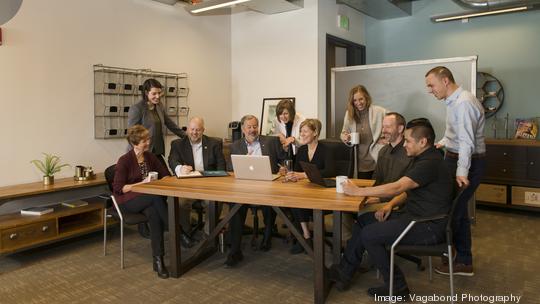
The Water Council's BREW (Business, Research & Entrepreneurship in Water) 2.0 Post-Accelerator launched in early 2021 and is aimed at helping late-stage water technology companies enter the market or make connections needed to rapidly grow. The redesigned program is focused on helping participating startups sell and scale into municipal and industrial markets. The Water Council helps to support the BREW 2.0 companies with their market goals, including with ongoing local and global connections in the industry. It said it hopes that non-Wisconsin companies that participate see the significant advantages of being physically located in the Milwaukee region’s water technology cluster and consider opening an office in Wisconsin.
Biggest accomplishment in the past 12 months: "In its first year under the new format, the program has been a striking success in terms of content but also global reach, with 12 companies participating, including one from Wisconsin, eight from other locations in the U.S., three from Canada and one from Chile. The culmination of the 2021 session was a virtual pitch event attended by 140 people from around the world. Business development is a slow and arduous process for small water tech companies, but one participating company in 2021 was quickly backed by a major data storage company, and another secured a Wisconsin distributor and has deployed its solution in the state."
Biggest challenge in the past 12 months: "Covid created considerable challenges for The Water Council, as with every nonprofit, with respect to funding – both for The Water Council’s water innovation programming and the small businesses we nurture. ... The challenge for water (technology) is that it is not necessarily seen as the “sexiest” topic and doesn’t always attract the attention of investors, as it is a technology area that takes extensive time to develop, pilot and prove in a highly regulated market."
Milestone the organization is working toward in the next 12 months: "We seek to broaden and strengthen the applications for our 2022 program and expand the level of programming for the participants. One example is a new partnership with Thales Water Advisors, a leading water strategy and financial advisory firm, that will provide expertise and thought leadership that we believe will be a unique service for BREW 2.0 participants."
How Wisconsin’s technology and startup ecosystem could be improved: "We need to build more of a culture of risk-taking in Wisconsin. We also need to build up the support, both financially and culturally, to allow innovators to fail and try again."
Inspiring thought leaders: Seth Siegel, author of “Let There Be Water” and “Troubled Water;" Water Foundry founder Will Sarni; journalist Charles Fishman, author of "The Big Thirst: The Secret Life and Turbulent Future of Water;" Dragan Savic, CEO of the KWR Water Research Institute in the Netherlands; Brookings vice president Amy Liu

